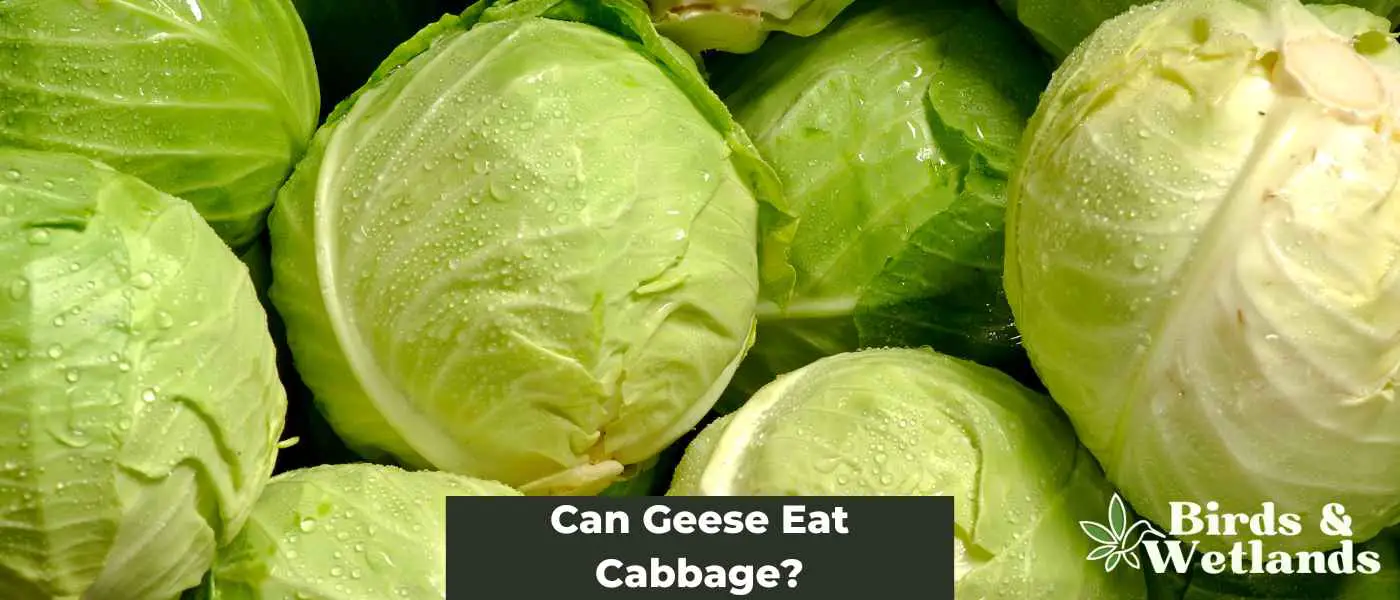Geese are omnivorous animals, meaning they eat both plants and animals. In the wild, they typically feed on a variety of items including aquatic plants, grains, insects, amphibians, small reptiles and other small mammals.
While geese will enjoy eating cabbage and other vegetables in their backyard setting or on a farm, it’s important to keep in mind that too much of any one food can lead to health problems.
Key Points
- Geese are omnivores but traditionally considered herbivores, as evidenced by their diet consisting largely of natural food and plant material.
- Cabbage is good for both wild and domestic geese because it is rich in nutrients, vitamins, and minerals while low in fat.
- Unlike other animals, free-range geese aren’t picky eaters. They are content with small piles of grains, grass and greens such as cabbage for ducks and geese.
- Goslings can eat cabbage too but make sure you chop them into small pieces to avoid choking.
Can wild geese eat cabbage?
Yes, you can feed wild geese cabbage. Wild geese eat a wide range of plants and vegetables. They pull submerged roots and graze for aquatic grasses. They are completely reliant on plants for all their nutritional needs.
You often see these birds day feeding to get some extra fat reserves and fatten themselves up before their long flight.
So it’s not surprising that they also eat cabbage. In fact, cabbage is good for wild geese. Cabbage is high in nutrients, vitamins, and minerals while low in calories and fat. Furthermore, cabbage is a healthy alternative to wrong food such as bread.
The next time you head over to your local park, feed wild species such as Canadian geese with cabbage.
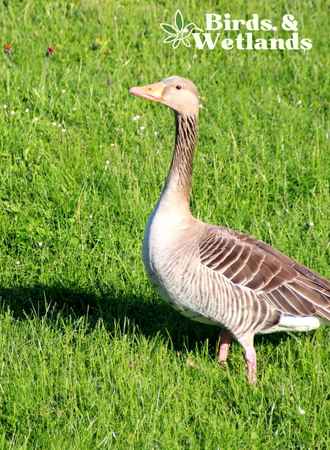
Do domestic geese like cabbage?
Even though they have a bitter taste, domestic geese enjoy leafy greens and will frequently eat cabbage. They prefer high-protein foods, so they may consume less cabbage than other greens, such as spinach or kale. However, they will eat cabbage if it is the only green available.
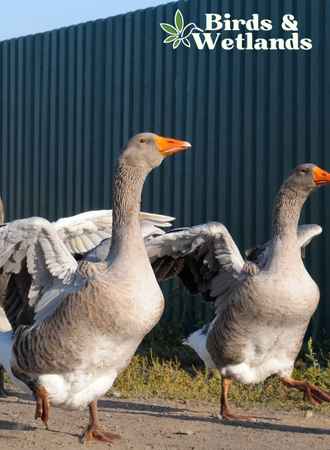
Can goslings eat cabbage?
Cabbage is a nutritious food for young geese. It is high in vitamins and minerals and can benefit a duckling’s overall health. Just remember to feed goslings cabbage in moderation. Too much cabbage can cause digestive issues such as gas and bloating.
When feeding baby geese cabbage, offer it chopped or shredded. This will make eating easier for them. Discard leftover cabbage from your feeding area after a few hours. Spoiled and moldy food attracts rodents.
Fresh water should always be available to goslings. A dish of fresh drinking water should be kept near their food so they can drink whenever they are thirsty. Drinking water will aid in the prevention of problems such as dehydration and constipation.
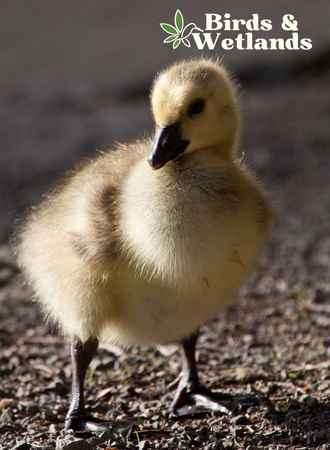
What is the nutritional value of cabbage?
Keeping geese happy is as simple as giving them grass and leafy greens such as cabbage. Cabbage contains many vitamins and minerals geese need for a nutritious diet.
It contains a wide range of vitamins, minerals and antioxidants that are very good for your geese’s health. Here are some of the benefits of feeding geese cabbage:
Antioxidants
Antioxidants have numerous and far-reaching benefits. They are good for humans, but backyard geese benefit from them too.
Cabbage is high in antioxidants, which aid in cell protection. Geese need antioxidants since they are constantly exposed to the elements.
Antioxidants also support the immune system. Geese are prone to infections and diseases, so a boost to their immune system is beneficial to them.
Another benefit of antioxidants is that it is believed to slow down the aging process. Geese have a shorter lifespan than humans, so feeding them with cabbage can mean the difference between a long and healthy life and a short and unhealthy one for geese.
Potassium
Cabbage is a type of potassium-rich leafy green vegetable, so adding it to your goose diet is good. This mineral is required for geese’s proper cell, tissue, and organ function. It also aids muscle contraction and helps regulate blood pressure and heart rate. Potassium helps geese maintain healthy feathers and strong bodies. It is also thought to assist them in flying faster and farther.
Calcium
Calcium is essential for geese and other waterfowl to stay healthy and safe.
Geese are waterfowl that have successfully adapted to life on the water. Their webbed feet act as paddles, propelling them effortlessly through the water. They also have a layer of feathers on their body that helps to insulate and keep them warm. However, feathers are relatively fragile and can be easily damaged by exposure to the elements.
Geese must consume calcium-rich foods to keep their feathers healthy. This mineral helps strengthen the feathers’ keratin fibers, preventing them from breaking or fraying. Furthermore, calcium is important for bone health and can help prevent injuries during a fall.
If you want to raise geese for their eggs, know that they need calcium. During the laying season, egg-laying female geese require calcium to support the development of strong eggshells. Without calcium, eggshells become thin and fragile, which can cause hatching issues. Even though geese are seasonal layers, they need layers pellets which should not be confused with layers mash. You can mix cabbage with their layer pellets.
Vitamin C
While many animals can produce their own vitamin C, geese are not one of them. As a result, they must obtain this critical nutrient through their diet. Vitamin C is essential for immune function, and a lack of it can result in various health issues, including scurvy.
Geese in the wild typically eat a variety of vitamin C-rich plants. On the other hand, domestic geese may need access to such a diverse diet. Furthermore, stress can increase the body’s requirement for vitamin C. For these reasons, it is generally recommended that domesticated geese be given foods rich in vitamin C, such as cabbage.
Fiber
Unlike ducks, adult geese are grazers, meaning they spend most of their time eating grass and other plants. They may have a diet similar to ducks but what foods they eat are entirely different.
Geese’s diet is low in calories and fat while being high in fiber. While fiber may not appear to be an important nutrient, it is essential for geese. It supports a healthy digestive tract, aids in the proper digestion of food and the elimination of waste from their bodies. Furthermore, fiber keeps geese feeling full, which is important given the small number of calories they consume.
How often can geese eat cabbage?
While cabbage is a healthy vegetable, there should be other food your geese eat. A diet high in cabbage can cause health problems such as intestinal blockages.
Furthermore, cabbage does not provide all of the nutrients geese need for a healthy body. For instance, cabbage lacks protein, essential for muscle growth and repair of damaged cells. Ideally, you can feed your geese cabbage thrice a week.
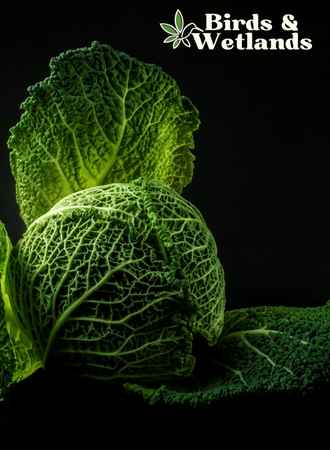
How to feed cabbage to geese
Cabbage is a cheap and nutritious option for goose feed that can be found in most grocery stores. It is high in fiber, vitamins and minerals while low in fat, making it an excellent option for traditional animal feeds for those looking for a natural alternative.
Simply remove the cores and chop the cabbage into bite-sized pieces to prepare it for goose feed. After that, you can then place the cabbage in a feeding bowl, with or without water. Geese prefer to eat the cabbage leaves first, but they will also eat the stem.
What other foods can you mix cabbage with?
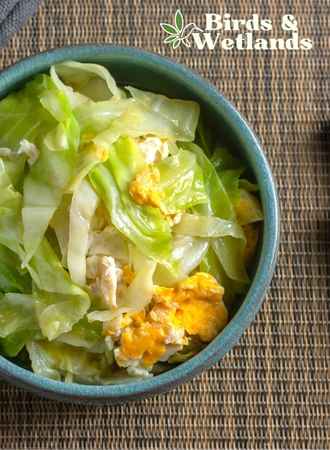
You can feed geese a varied diet consisting of high-quality food such as plants, fruits and vegetables to make sure they receive all the nutrients they require.
- Other fresh greens, such as cauliflower leaves, kale or collards, can be fed to your geese in addition to cabbage. You can also feed them fresh vegetables like sweet potatoes carrots or celery, as well as fruits like apples or grapes.
- Cabbage lacks protein but you can supplement it with other foods. Geese eat insects, and they are rich in protein. They eat sunflower seeds too, which is another protein-rich food.
- Geese play in the fields while grazing. They eat agricultural grains so feed them cracked corn and winter wheat.
- If you are feeding geese with commercial feed, you can mix finely chopped cabbage and whole wheat with it.
- Always provide food in a safe environment and remove any uneaten foods from the feeding areas.

